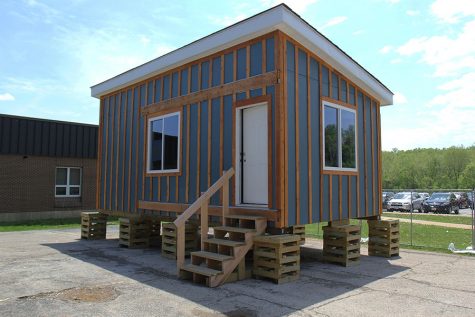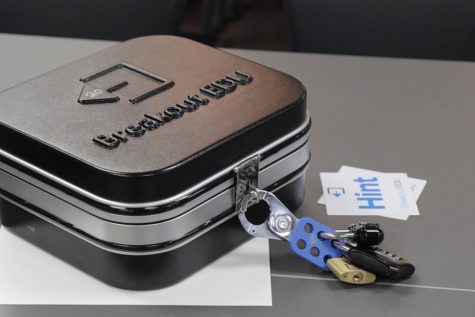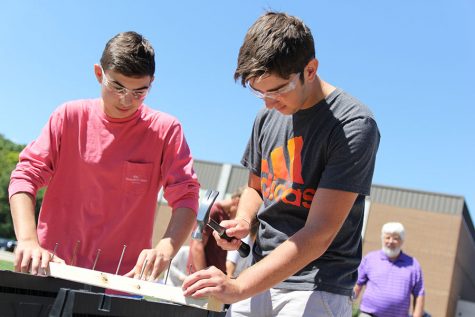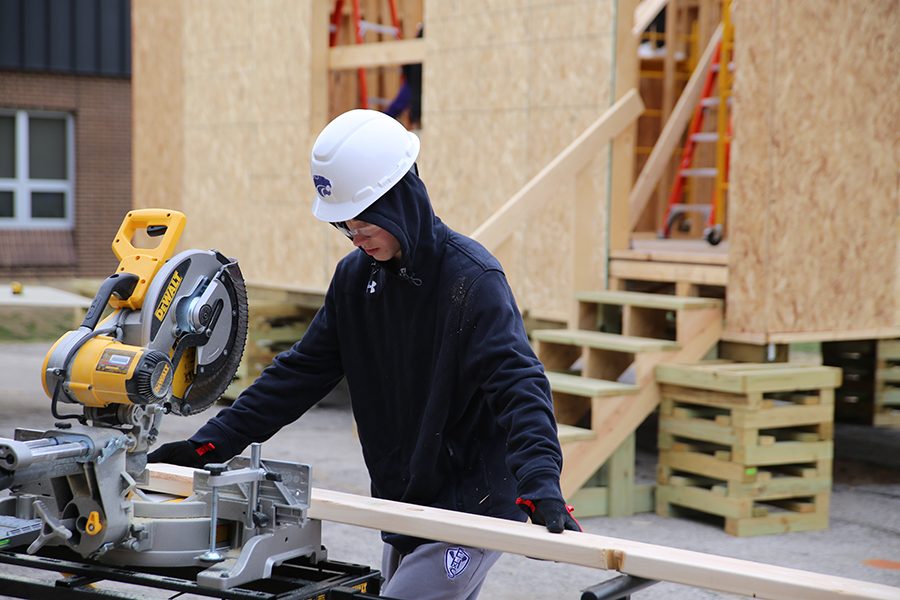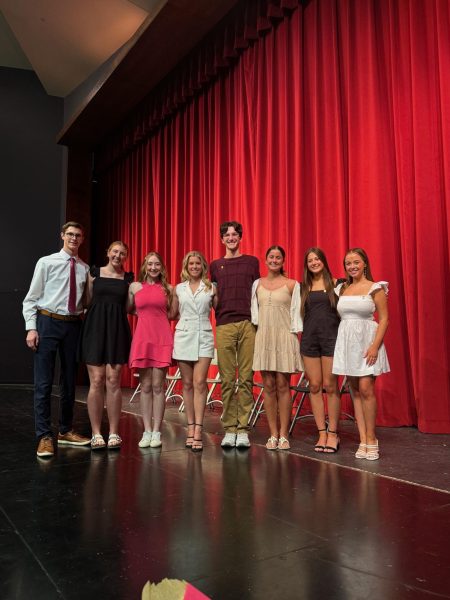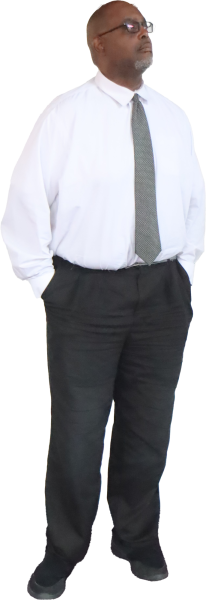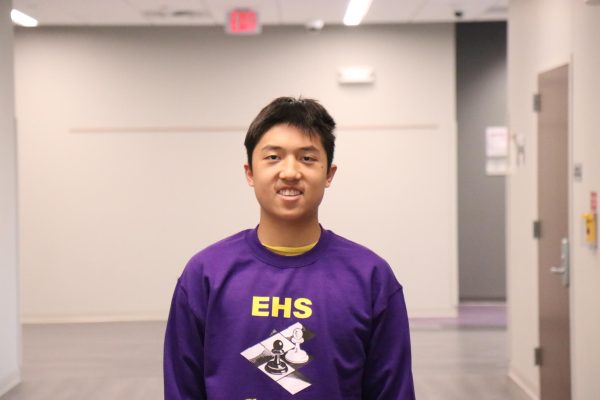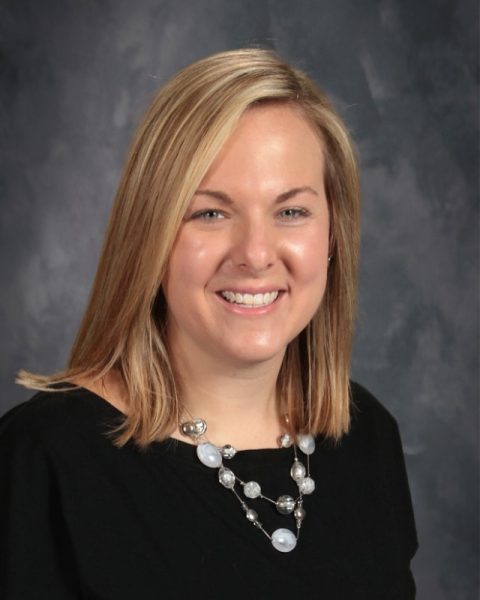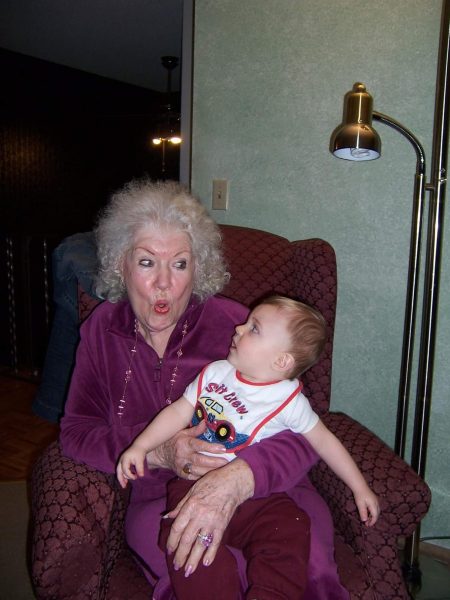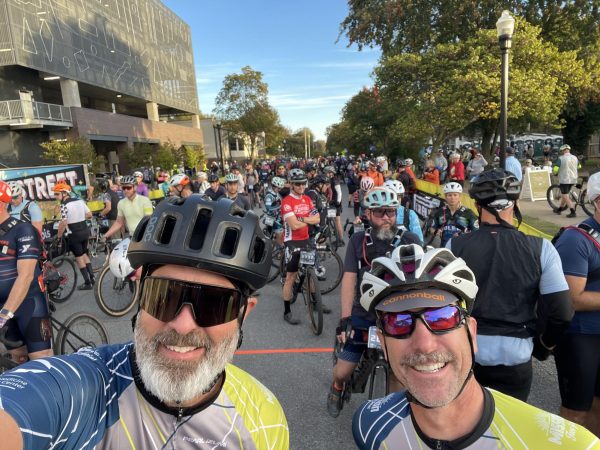Cutting edge
District overhauls high school program
Winter temperatures don’t stop Carson Estes (10) from classwork as he cuts the rafters for the roof of a tiny home in Geometry in Construction, Dec. 14.
“A typical school day should be going to school and learning lessons in class in order to help prepare you for college or a job,” Alexis Wibbenmeyer (10) said.
Students’ typical school day next year will operate differently and feel different than the current–perhaps outdated–high school experience.
RSD High School Program Design Committee has been meeting for a year to review the high school experience. The committee’s overall task is to review the district’s high school program and make changes in order to create the most meaningful high school experience for all students. EHS’ and RSD’s focus has shifted towards preparing students for the workplace and life beyond school.
“Our charge is to go get research on different sub-categories to bring more information back so we can make sure that not just Eureka High School but all of our Rockwood high schools have the very best research-based programs for students as they enter high school and transition through those four years,” AnnMarie Gilman, HSPD Working Committee, said.
The HSPD Working Committee has met once a month since October 2016. The committee has four pillars set as guidelines to aid them throughout their process: student-centered, ownership, authentic and connectedness.
“These four pillars help us make sure that we’re hitting all of these other pieces so that we score well but we also act well,” Symphony Bruce, HSPD Working Committee, said.
The committee’s five areas of study are…
- scheduling
- social-emotional learning
- innovative instruction
- college and career readiness
- student engagement
“This committee is really designed to look at overall high school experience,” Lisa Counts, assistant superintendent of supervision of schools, said. “We’ve always done reviews, updates and improvements on high school programming, but this was a way to look at all areas of high school programming to prioritize where we have the greatest need for improvement.”
Committee work resulted in some key recommendations, including some sort of capstone project, flex/advisory time and professional development.
A capstone project is “a multifaceted assignment that serves as a culminating academic and intellectual experience for students.” The form and direction are student chosen and driven.
“The idea of a final capstone project goes along with that pillar of providing authentic learning and authentic assessment and goal-driven learning and allowing students to at least find something within their school that they want to learn,” Bruce said.
Authentic learning and assessment are assignments and activities that reflect real-world experiences. Teachers currently employ authentic learning at their own discretion, but new classes like Geometry in Construction and A.M.P.E.D.: Algebra 1 in Manufacturing Processes, Entrepreneurship & Design are founded on authentic learning routinely.
Another possible change: steering away from the hybrid-block schedule. The district chose the current hybrid-block schedule in 2006, and it was implemented into Rockwood’s curriculum in the 2008-09 school year.
Administrators at the four RSD high schools have been meeting with teachers to discuss new scheduling options. The information gathered by the administrators will then be brought back to the HSPD and the district, then a final decision.
Two schedules have been proposed. Each are hybrid-block schedules and incorporate flex time into the week. Flex time would give students time to receive additional help during the school day, meet with clubs or study. One schedule offers weekly flex time, while the other offers daily flex time.
“If we got a break during the day that was more than just the six minutes of passing period, I think that would help,” Christella Payne (11) said. “If there was a study hall for everyone at sometime during the day I think that would improve the school day a lot.”
One of the proposed schedules combines lunch with this flex time to provide daily options in what they refer to as the power lunch. The other proposed schedule would likely provide flex time once a week.
“There are certain subjects that I just struggle with more than others,” Aaron Nieman (10) said. “I feel like if I had a period of study hall or a time to meet with teachers, it would help me understand the lessons better and it would help me better prepare for tests.”
Although RSD has began discussing schedules, nothing is certain yet.
“The timeline is a little uncertain because there’s still things to be done, but some of the things students can expect a difference in [are] a more individualized focus,” Counts said. “[We are] trying to create lots of options for students so that there’s room for students to pursue varied interests, lots of choice and voice.”
High schools seem strikingly similar to the high school experience 30 years ago. It seems that the HSPD Working Committee’s task is long overdue.
“The world is rapidly changing and high schools must change in order to keep up and to produce young people who can enter the world and actually operate within it,” Bruce said. “Right now our schools still operate in a very archaic fashion.”
RSD high schoolers should expect to see a much larger focus on individualization and college career readiness.
“I strongly believe that high school isn’t for everybody,” Bruce said. “If we make the changes we need to make then maybe we can keep more of our kids, but unless we’re doing this work and doing it authentically then we’re going to continue to have high school as a place that is not for all kids.”
Your donation will support the student journalists of Eureka High School - MO. Your contribution will allow us to purchase equipment and cover our annual website hosting costs.
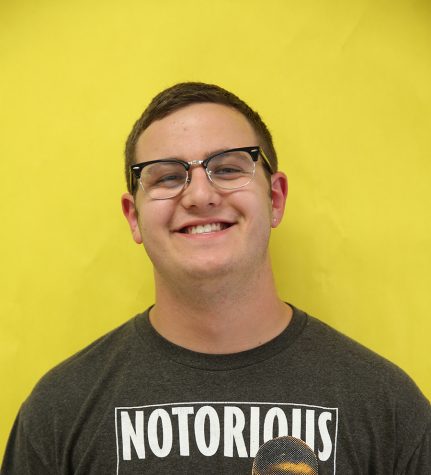
This is Ethan's seventh semester on the News Production staff. In his free time, he enjoys taking photos, going to concerts and hanging out with his friends....

